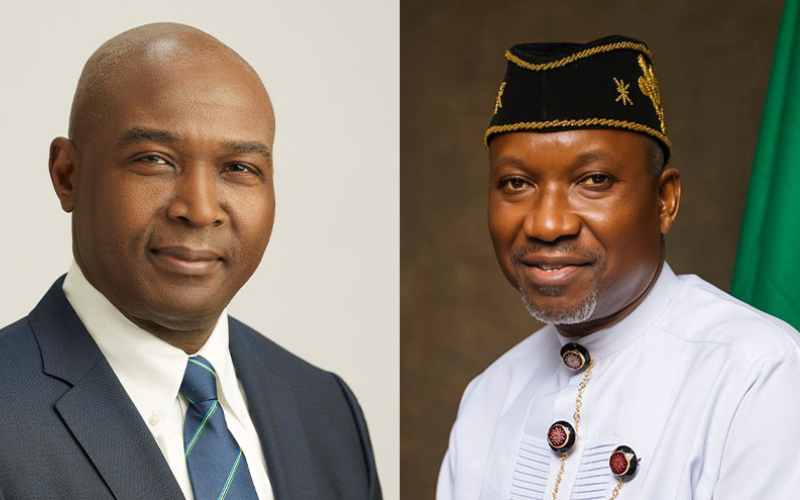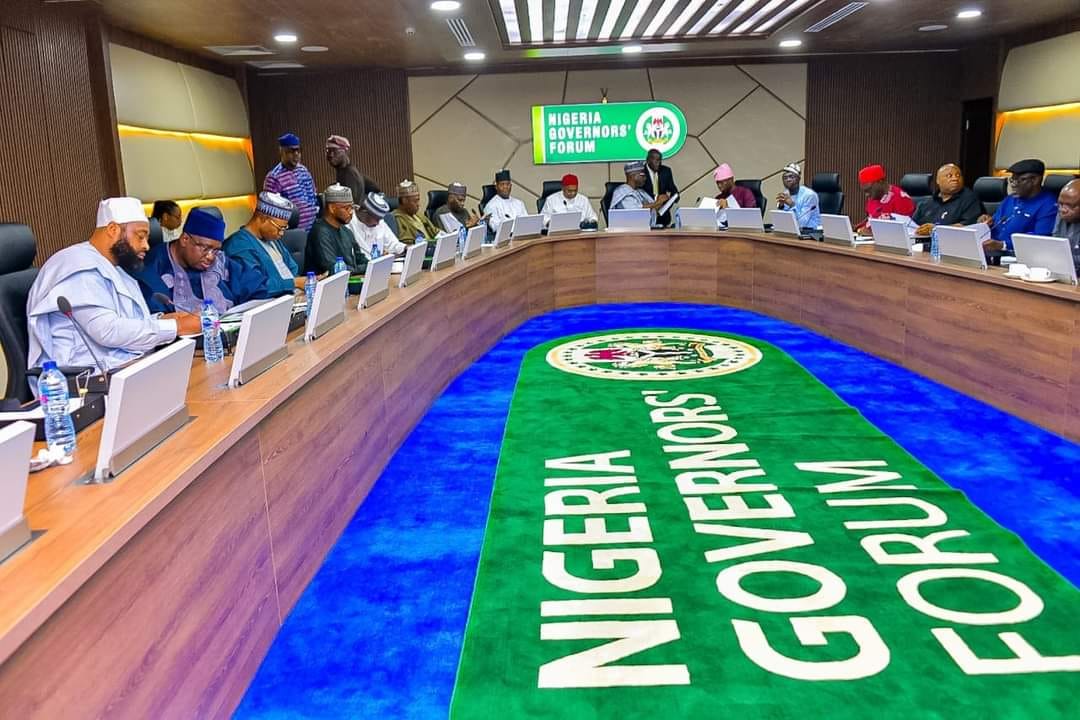N’Assembly Joint Committee Proposes New State for South-East
N’Assembly Joint Committee Proposes New State for South-East
•Recommends independent candidacy, extra legislative seats for women
•Kalu urges adherence to national interest in constitution review process
Sunday Aborisade and Adedayo Akinwale in Abuja
In a historic decision that could redefine Nigeria’s political architecture and deepen democratic inclusivity, the Joint Committee of the National Assembly on Constitution Review has approved the creation of an additional state for the South-east geopolitical zone.
The committee also recommended independent candidacy for future elections and an extra elective seat for women in every state of the federation.
The far-reaching resolutions were adopted at the committee’s closed-door retreat held at the Lagos Marriott Hotel, Ikeja, yesterday.
This is just as the Deputy Speaker of the House of Representatives, Benjamin Okezie Kalu, has emphasised the need for the constitution review process to be guided by national interest, rather than individual or party interests.
The joint committee, comprising one senator and one member of the House of Representatives from each of the 36 states, deliberated on key constitutional proposals and reached consensus on three transformative reforms.
For decades, leaders and stakeholders from the South-east have clamoured for a sixth state to ensure parity with other regions of the federation.
The zone currently has only five states: Abia, Anambra, Ebonyi, Enugu, and Imo, while most other zones have six, and the North-west has seven.
The meeting, which began around 4:00 p.m., was jointly presided over by the Deputy President of the Senate, Senator Jibrin Barau, and the Deputy Speaker of the House of Representatives, Kalu, who also chairs the House Ad Hoc Committee on Constitution Review.
The motion for the new state’s creation was moved by Senator Abdul Ningi (Bauchi Central) and seconded by Hon. Ibrahim Isiaka (Ogun State).
After a robust debate, the proposal received unanimous backing from members of both chambers after spirited deliberations anchored on equity, justice, and fairness.
In addition to the creation of an additional state for the South-east, the joint committee also recommended the institutionalisation of independent candidacy and the establishment of gender-based legislative seats.
The committee also agreed to revisit the over 278 pending requests for new local government areas and 55 proposals for new states, noting that additional reviews would be handled by a newly formed subcommittee.
The resolution, once ratified by the National Assembly and endorsed by at least 24 state Houses of Assembly, as required by the 1999 Constitution, would finally bring the South-east to parity with other regions.
Reacting to the decision, Senator Ali Ndume (APC, Borno South) described the move as “a long-overdue act of fairness and justice.”
According to him, “No region should be structurally disadvantaged. Giving the South-east an additional state restores balance and reinforces national unity.”
Deputy Speaker, Benjamin Kalu, who has been a consistent advocate of the initiative, lauded the decision as “a significant milestone for equity and inclusion in Nigeria’s federal structure.”
Equally momentous was the committee’s approval of independent candidacy—a reform that will, for the first time, allow qualified Nigerians to contest elections without the sponsorship of political parties.
The proposal seeks to dismantle the dominance of party oligarchies and expand access to the democratic space, giving room for credible, non-partisan individuals to vie for public office on merit.
According to insiders, the committee’s debate on the issue was “spirited but progressive,” with lawmakers across party lines agreeing that allowing independents would strengthen accountability and public trust in the electoral process.
The reform, once passed, would require adjustments to the Electoral Act and the 1999 Constitution to define eligibility, nomination procedures, and campaign financing frameworks for independent candidates.
In another groundbreaking resolution, the committee approved one additional legislative seat for women in both chambers of the National Assembly for each state of the federation.
If ratified, this amendment will create new Federal Capital Territory (FCT) seats in the House of Representatives and 36 new seats in the Senate, ensuring every state and the FCT have dedicated female representation.
Nigeria’s female representation in parliament currently stands below five per cent, among the lowest in Africa.
The new measure aims to address this disparity and align the country with global standards of gender inclusion in governance.
To harmonise the technical and legal details, the committee constituted a sub-panel to refine the proposals before presenting them for consideration at plenary sessions of both chambers.
Once adopted, the amendments would be transmitted to the 36 state assemblies for concurrence.
Deputy Senate President, Senator Jibrin, urged members to build consensus among colleagues and across states to ensure the reforms pass the crucial constitutional threshold.
“We need to strengthen what we have started so that all parts of the country will key into this process. By the time we get to the actual voting, we should already have the buy-in of all stakeholders—from both chambers and the State Houses of Assembly,” he said.
The committee’s decisions marked a significant milestone in Nigeria’s decades-long journey toward a more equitable and representative federation.
The proposed amendments, spanning regional balance, electoral openness, and gender inclusivity, could collectively reshape the structure and spirit of the Nigerian republic if successfully ratified.
The symbolic and substantive message is that the 10th National Assembly is willing to confront structural imbalances, deepen democratic access, and give every Nigerian, regardless of region or gender, a fairer voice in the country’s future.
Kalu Urges Adherence to National Interest in Constitution Review Process
Meanwhile, while delivering his address at the retreat, the Deputy Speaker of the House of Representatives, Kalu, has emphasised the need for the constitution review process to be guided by national interest, rather than individual or party interests.
In a statement issued yesterday by his Chief Press Secretary, Levinus Nwabughiogu, Kalu said that every article, clause, and decision made during the review process should be evaluated based on what is best for Nigeria and its over 200 million citizens.
He stressed that the constitution review should not also be driven by regional agendas, but a collective desire to evolve a document that will positively impact the lives of Nigerians.
Kalu, therefore, urged the lawmakers to prioritise the nation’s interests above any other consideration to ensure that the review process delivers a constitution that truly reflects the hopes and aspirations of the Nigerian people.
He said: “As we deliberate, let us stay anchored on three guiding principles: Unity of Purpose: Our political differences must dissolve here. On constitutional reform, Nigeria must speak with one voice. Only through joint resolve can we deliver amendments that command national legitimacy and bipartisan support.
“Legislative Discipline: Constitutional reform is no ordinary law-making process. It requires technical precision, sober judgment, and prioritisation. Let us focus on practical, impactful amendments that enjoy broad public endorsement.
“National Interest: Every article, every clause, every decision we take must answer one question: Is this what is best for Nigeria? Not for our parties, regions, or political ambitions, but for the over 200 million Nigerians whose hopes our actions will shape.”
Kalu added that the collective aspiration of Nigerians is for the parliament to deliver a people-oriented Constitution that will guarantee justice, equity, progress and generally impact the people.
“Let us remember that history is watching. The Constitution we seek to refine is more than a legal instrument; it is the soul of our Republic, the expression of our common destiny.
“Let the work we do here in Lagos reflect our shared commitment to a Nigeria that works for all. Let this retreat produce a clear, achievable roadmap: one that strengthens local governance, enhances gender balance, ensures credible elections, and secures our federation against future instability.
“As the Senate and House stand united in this constitutional review process, let us leave Lagos with the resolve to transform our deliberations into enduring constitutional milestones.
“Together, we can build a constitution that guarantees justice, equity, and progress for every Nigerian: today and for generations to come,” Kalu added.
•Recommends independent candidacy, extra legislative seats for women •Kalu urges adherence to national interest in constitution review process Sunday Aborisade and Adedayo Akinwale in Abuja In a historic decision that could




